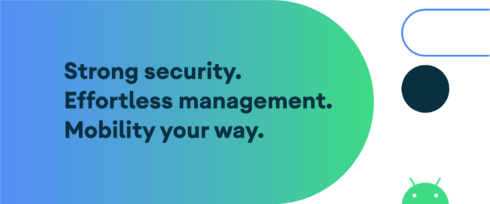
The Android development team today shared a number of new features and updates that are designed to help users balance their needs and achieve mobility goals with Android Enterprise. A few notable highlights include the launch of the first Android Enterprise Vulnerability Rewards Program, embracing the use of Custom Tabs for developers to integrate authentication into their apps, the introduction of the Android Management API that will ensure that customers receive the fastest delivery of enterprise features, and the availability of work profile to unmanaged users with a business identity.
With the release of Android 12, the company is introducing more security features and services for enterprise customers, including improving password complexity controls. With this, it becomes easier to protect company data and disable USB signaling on company owned devices to limit USB-based attacks. In addition, Android released additional privacy-preserving security controls for the Android work profile such as network logging of work apps. With Android 12 also comes the launch of the Android Enterprise Vulnerability Rewards Program and the offer of up to $250,000 for a full exploit on a Pixel device running Android Enterprise.
In addition, the Android team has developed APIs and tools to support Zero Trust on Android. This allows organizations to tier access based on extensive device-based signals and security information. The role of identity providers in Zero Trust environments on Android has also been updated. Now, identity providers can build a comprehensive analysis of trustworthiness prior to granting access to corporate resources. This is happening by moving beyond WebView and utilizing Custom Tabs to integrate authentication into applications.
For organizations that use Android Enterprise with an Enterprise Mobility Management (EMM) solution, Android is making management more secure and user friendly with the Android Management API. This works as a cloud-based API and will ensure that users receive the fastest delivery of all of Android’s enterprise features with best practices and Android Enterprise Recommended requirements set by default. Over 60 EMM providers have already launched solutions based on Android Management API, including Microsoft, Citrix, and Google Workspace. Other EMM providers such as Ivanti, SOTI, IBM, Samsung, and Softbank are scheduled to launch solutions soon.
Updates were also made to the Android work profile. Now, work profile benefits are available to unmanaged users with a business identity. This will eventually allow for the separation of business and personal applications in one interface and the ability to pause all work-related apps in one click. This will become available to Google Workspace users starting next year with plans to be extended to include more identity providers soon after.






